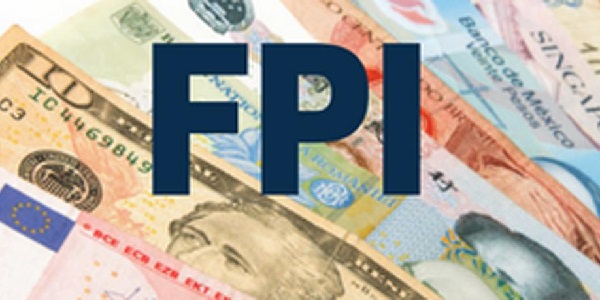
Stock Market records largest turnover in 3 years
Transactions by foreign investors at the Nigerian market have doubled to the highest level in three years.
Latest report on Foreign Portfolio Investments (FPIs) obtained by The Nation at the weekend indicated a major positive shift in their sentiment and participation in the Nigerian investment market.
The report, coordinated by the Nigerian Exchange (NGX), showed that FPI transactions rose by 113.94 per cent from N33.36 billion in October 2023 to N71.37 billion in November 2023. The turnover was driven mainly by a largely balanced trading pattern with some five per cent difference between outflows and inflows.
The latest turnover is the highest in three years since October 2020. Foreign investors now account for nearly a quarter of transactions at the Nigerian stock market, the highest level of percentage participation since October 2020.
This represented a major shift considering that total turnover at the Nigerian equities market rose by about 48.2 per cent over the past one year.
In foreign currency, total FPIs in November 2023 stood at $75.76 million as against $36.83 million in the previous month. With this, the percentage participation of foreign investors in trading at the Nigerian stock market increased to 23.74 per cent.
Total turnover at the Nigerian equities market hit N3.23 trillion for the 11-month period ended November 2023 as against N2.18 trillion recorded in the corresponding period of 2022. On a monthly basis, total turnover rose from N220.94 billion in October 2023 to N300.67 billion in November 2023.
Market analysts at Cordros Capital Group said the jump in FPI transactions was “likely due to investors’ optimism about the reforms from the government”.
Foreign participation in the Nigerian market had dropped to an all-time low of 4.43 per cent in April 2023 ahead of the May 29, 2023 inauguration of the President Bola Tinubu administration.
According to analysts, foreign investors’ participation may improve further over the medium term based on expected foreign exchange (forex) inflows, Central Bank of Nigeria (CBN)’s recent actions in clearing its forex backlogs and firm direction of short-term interest rates.
The CBN has been clearing the backlog of forex, which had been a major cause of illiquidity and concern to foreign investors. The apex bank recently disbursed about $61.64 million to foreign airlines in a follow-up to a $2 billion redemption of outstanding forward liabilities.
The FPI report included transactions from nearly all custodians and capital market operators and it is widely regarded as a credible measure of FPI trend. The report uses two key indicators-inflow and outflow, to gauge foreign investors’ mood and participation in the equities market and the economy. While inflows and outflows indicate direction of portfolio transactions, total FPI measures the momentum and level of participation.
When inflows outweigh outflows, it simply means foreign investors are buying more quoted equities than they are selling and when outflows outpace inflows, it implies that foreign investors are selling more of their investments than buying more investments. Thus the position of FPI surplus or deficit.
Further analysis showed that total FPIs transactions for the 11-month period ended November 2023 stood at N362.75 billion as against N364.02 billion recorded in the comparable period of 2022.
Domestic investors also continued to show strong appetite for the market with total stakes rising from N187.58 billion in October 2023 to N229.30 billion in November 2023.
Over the 11-month period, total turnover by domestic investors rose from N1.82 trillion by the period ended November 2022 to N2.87 trillion in the period ended November 2023.
Analysts were unanimous that the improvements in foreign participation and transactions at the Nigerian market might not be unconnected with the pro-market reforms of the Tinubu administration.

The NGX had noted that the market’s bullish performance was partly driven by the macroeconomic reforms and investors’ friendly disposition of the Tinubu government.
Market analysts agreed that the return of foreign investors could help to bolster Nigeria’s flagging forex position and strengthen the naira.
Group Executive Director, Investment Banking, Cordros Capital, Mr. Femi Ademola, said increasing foreign participation could offer some comfort that foreign portfolio managers are now optimistic about the country’s economic prospects and may be looking for opportunities to invest in Nigeria.
He said such a stance could send a more reassuring signal to the markets.

Be the first to comment